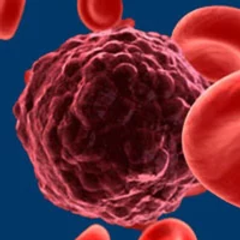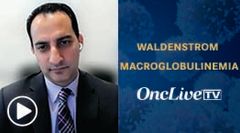
Dr. Castillo on the Integration of BTK Inhibitors in Waldenström
Jorge J. Castillo, MD, discusses the integration of BTK inhibitors in Waldenström macroglobulinemia.
Jorge J. Castillo, MD, clinical director, Bing Center for Waldenström Macroglobulinemia, senior physician, Dana-Farber Cancer Institute, associate professor of medicine, Harvard Medical School, discusses the integration of BTK inhibitors in Waldenström macroglobulinemia.
Historically, the treatment of patients with Waldenström macroglobulinemia consisted of rituximab (Rituxan)-containing regimens, such as rituximab plus chemotherapy or proteasome inhibitors, Castillo says. Although these therapies are efficacious in this patient population, they conferred significant toxicity to patients.
For example, rituximab-containing regimens are associated with an increased risk of infection, as well as a lowered response to vaccines, Castillo continues. Chemotherapy is associated with an additional risk of secondary leukemia in this patient population because of bone marrow damage, Castillo adds. Moreover, proteasome inhibitors can cause neuropathy. As such, the integration of BTK inhibitors, which are less toxic comparatively, have transformed the management of Waldenström macroglobulinemia, Castillo concludes.









































